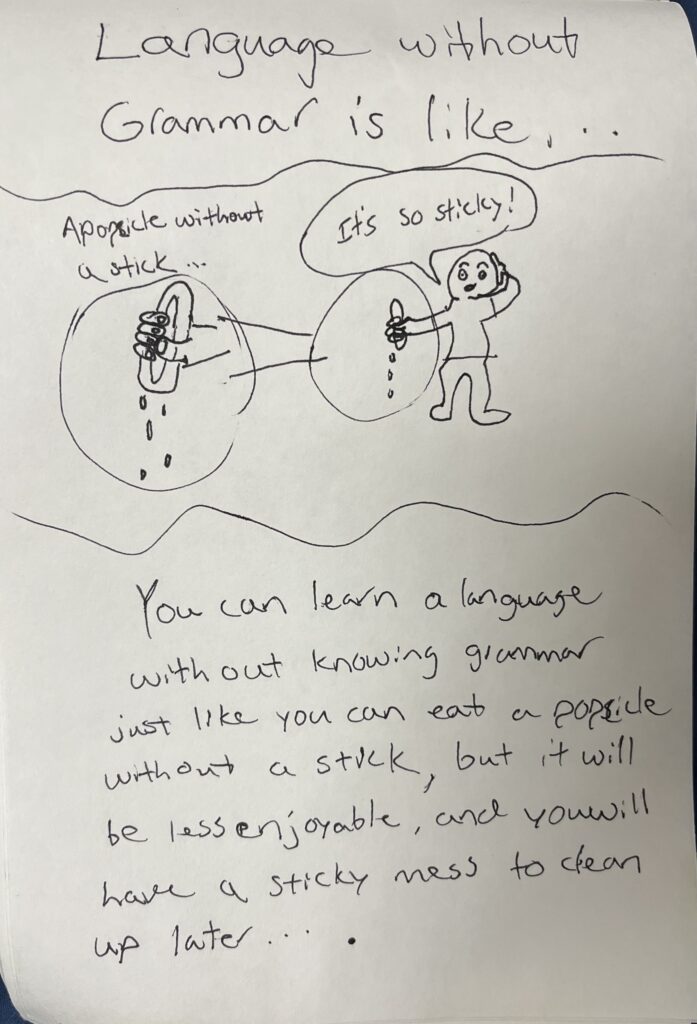Grammar is vital to learning a language. It is also probably my favorite part of the process.
Grammar essentially comprises the rules of the language. Language on the surface is a bunch of words that, together, convey a message. However, part of what contributes to the speedy transmission of this message is the grammar.
For instance, in English, one might say, “I found a worm in my eggs, gross!”, and it might seem like a simple sentence, but there is a complex mechanism working behind the scene to make it simple– grammar. If we scrambled the sentence so that it became “eggs a I in gross my found, worm!” we now read it and feel confused. We might eventually piece it together and figure out the correct arrangement of the words in this sentence, it will take much longer than the process for comprehending the first sentence. In the second sentence, the subject, or person doing the action, is no longer at the beginning of the sentence, which, in English, almost always occurs (except in the case of an interrogative or question sentence). Also, we see that “a” and “I” are next to each which defies all laws of euphony (that is, the idea that some minor alterations can be made to words to make them less awkward to pronounce). These are just a few of many of the second sentence’s grammar violations, impeding our understanding of the sentence’s meaning.
The grammar, then, is like the skeleton of the sentence. If people didn’t have a skeleton, they would be piles of mush. Similarly, a language without grammar would result in a lot of sentences like the second sentence above– pure nonsense. So, one way to quickly develop a functional knowledge of a language is by gaining a firm understanding of that language’s grammar rules. If you can do that, you can learn new words and “plug” them into the grammar foundation that you have established in your head.
Ultimately, it just feels way better knowing that there is some structure to work with when you are trying to produce the language (also known as speaking or writing the language) or when you are reading and are trying to decipher a new word– a word’s “role” in a sentence can sometimes serve as a clue about its meaning. Still, if you want to see my point illustrated, refer to the image below. It is basically nonsense, but it compares language learning without grammar to consuming a popsicle without a stick….

